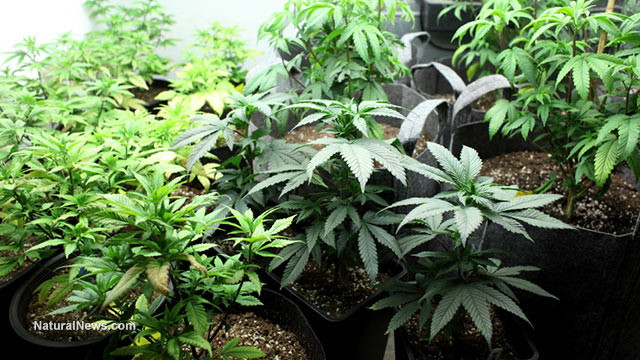Colorado lawmakers move to restrict THC potency, threatening cannabis industry
04/12/2016 / By Julie Wilson

The revolution to legalize marijuana for medicinal and recreational use continues to gain momentum; however, unfounded and antiquated ideologies (some of which are based solely in fear) still serve as a hindrance to the movement.
Lawmakers recently announced plans to regulate the potency of cannabis in Colorado, a move pot sellers say could put them out of business. Citing concerns regarding the health effects of cannabis on developing brains, legislators proposed a ballot initiative and an amendment to HB 16-1261 (Retail Marijuana Sunset).
The ballot initiative, which would ultimately need 98,492 signatures from registered voters to qualify, aims to cap cannabis potency to 15 or 16 percent THC, reports the Cannabist.
Law requires listing of marijuana’s health effects
Under the proposal, cannabis products sold in Colorado would need to have their potency listed, as well as a warning label identifying the following supposed health effects:
- birth defects
- reduced brain development
- risks to the brain
- behavioral development of babies
- breathing difficulties
- permanent loss of abilities
- mood swings
- impaired thinking and body movement
- depression
- temporary paranoia and anxiety
- potential for long-term addiction
The ballot initiative restricting cannabis potency to 16 percent THC would also require “everything to be sold in a child-resistant, opaque, resealable package.” And permit edibles to be sold only in single-serving amounts. These stipulations would only apply to recreational cannabis and not medical cannabis.
Most cannabis products sold in Colorado exceed 16 percent THC. A state study found cannabis flower generally contains about 17.1 percent THC while marijuana extracts have about 62.1 percent.
Support our mission and protect your health: Organic Seeds of Life combines Red Raspberry Seed Power, Black Cumin Seed Power and Red Grape Seed Powder into the most potent nutrient-rich supplemental superfood powder you've ever experienced. Loaded with flavonoids, antioxidants, anthocyanins, OPCs, ALA and a vast array of vital nutrients. Learn more here.
Under the law, stores would need to accurately report THC levels within plus or minus five percent. If retailers are caught violating the law, they could receive a license suspension, a license revocation, or a fine up to $100,000.
THC restrictions are “unconstitutional,” says cannabis supporter
Republican state Rep. Kathleen Conti, the woman behind the THC restrictions, said the government wants to be extra careful until more research is done. “All the studies that have been done on THC levels have been done on THC levels between 2 and 8 percent,” she said.
“Most of the marijuana coming in now, the flowers are being rated at a THC count of about 17 percent on average, so this is dramatically over, and we really don’t know that we’ve gotten the true feel on the health risks associated with that marijuana.”
Supporters of the proposal say it protects youth, while opponents argue that it’s unlawful and would push buyers back to the black market.
“I don’t think a lot of thought was put into the proposals,” said Mark Slaugh, marijuana industry compliance professional and executive director of the Cannabis Business Alliance. “This bill threatens to wipe out most infused product manufacturers, and its language is unclear as to what to do with edibles.”
Slaugh considers THC limitations “unconstitutional.”
Smart Colorado, a group that works to protect children and adolescents from marijuana, is behind the proposal. “One of our legislative priorities for this year was to raise awareness of the high levels of THC in the marijuana products in our state,” said Henny Lasley.
“Concentrates are of course what are put into marijuana edibles, and we have well over 300 of those food products, many many of which are attractive to children. And the high potency and unknown health impacts of those are deeply concerning to Smart.”
The second piece of legislation involves amendments to HB 1261, is a “sunset” bill involving regulations set to expire. The bill would renew the state’s rules pertaining to retail cannabis until 2019.
The amendment would “eliminate a requirement that licensees post surety bonds and would create new ‘retail marijuana transport’ and ‘retail marijuana operator’ licenses.”
A special label would also need to be placed on cannabis products containing more than 10 percent THC and state: “Warning: The health impacts of marijuana with a THC potency of above 10 percent are unknown.”
Sources:
Tagged Under: cannabis, Colorado, medicinal cannabis, Recreational cannabis, THC




















